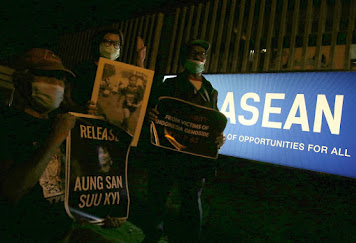When Association of Southeast Asian Nations (ASEAN) leaders meet in Jakarta to discuss the worsening political crisis in Myanmar on April 24, it will mark the first time that the regional organization holds a highest-level meeting to address a specific situation of concern involving one of its members.
Non-interference in domestic affairs has traditionally been one of ASEAN’s basic operating principles, along with decision-making by consensus. As such, Saturday’s summit is seen as a test of the grouping’s code of constraint as regional leaders find themselves under mounting pressure to engineer a workable, face-saving resolution before the crisis spirals further out of control.
To be sure, the situation in Myanmar is on a knife’s edge. Its ruling military junta has intensified a brutal campaign of suppression in defiance of world condemnation. The cycle of protests and bloody crackdowns has left at least 738 people dead, according to the Assistance Association for Political Prisoners (AAPP) monitoring group.
Inflexible repression by the Tatmadaw, as Myanmar’s military is known, has pushed segments of the urban-based protest movement into using low-level guerrilla warfare tactics, while escalating hostilities with ethnic armed forces in the north and east threaten a wider war on multiple fronts in the country’s borderlands.
Read the full story at Asia Times.
Nile Bowie is a journalist and correspondent with the Asia Times covering current affairs in Singapore and Malaysia. He can be reached at nilebowie@gmail.com.

